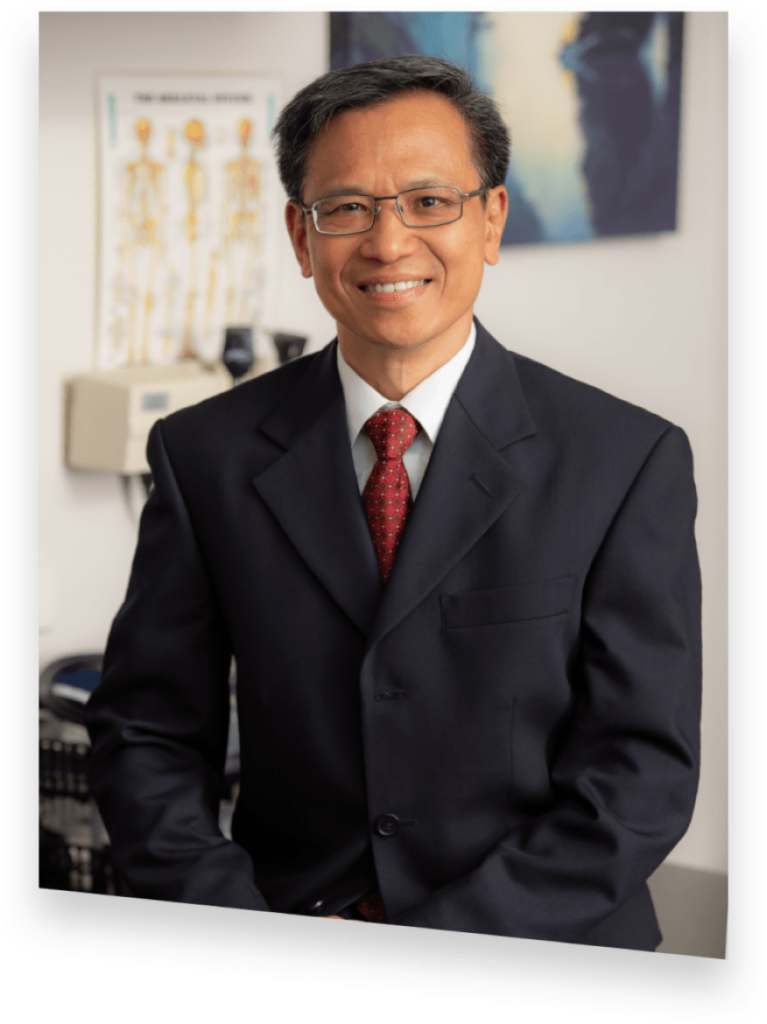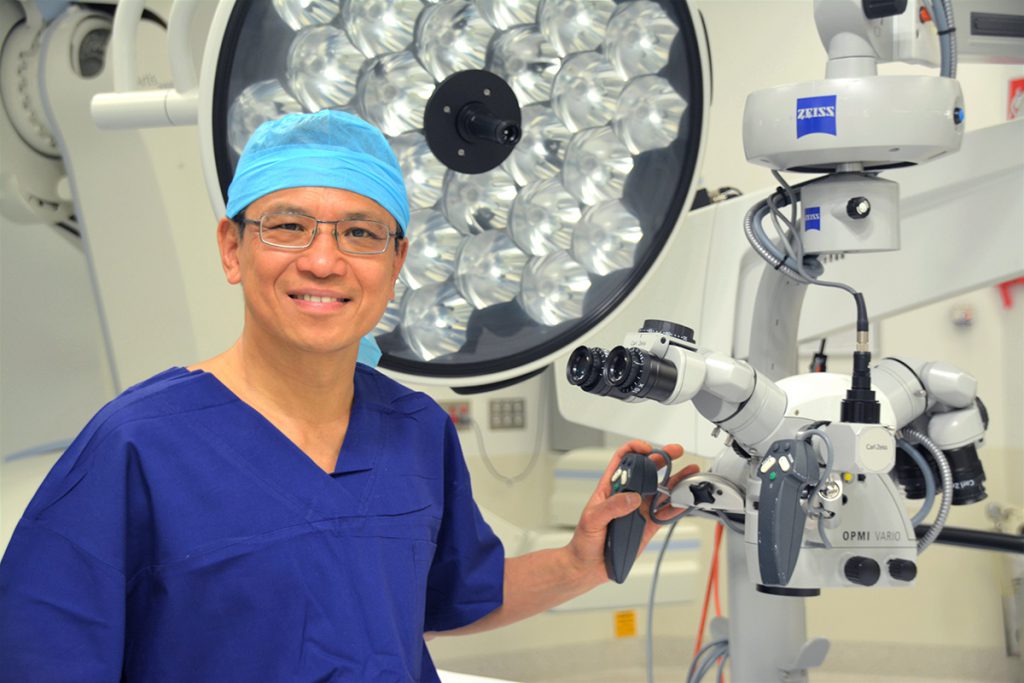Egg Freezing Sydney
Fertility Preservation and Egg Freezing (Oocyte Cryopreservation)
Egg freezing, also known as oocyte cryopreservation, is a medical procedure that allows individuals to preserve their eggs for future use. This technique has become an increasingly popular option for women who wish to delay childbearing for medical or personal reasons.
As a highly specialised fertility treatment, egg freezing is offered by Dr Derek Lok with expert care and guidance tailored to each patient’s needs.
As a highly specialised fertility treatment, egg freezing is offered by Dr Derek Lok with expert care and guidance tailored to each patient’s needs.

Understanding the Egg Freezing Process
Egg freezing involves several key steps to ensure that eggs are retrieved, frozen, and stored in optimal conditions.
Ovarian Stimulation
The process begins with hormonal stimulation to encourage the ovaries to produce multiple eggs. This involves daily injections of follicle-stimulating hormone (FSH) over 10 to 14 days.
Monitoring and Trigger Injection
During this period, ultrasound scans and blood tests monitor follicle development. When the follicles reach the right size, a trigger injection is administered to mature the eggs in preparation for retrieval.
Egg Retrieval
Approximately 36 hours after the trigger injection, eggs are collected through a minor surgical procedure called transvaginal oocyte retrieval. This is performed under light sedation or general anaesthetic.
Freezing the Eggs
The retrieved eggs are rapidly frozen using vitrification, a fast-freezing technique that prevents ice crystal formation and preserves egg quality. They are then stored in liquid nitrogen at -196°C.
Storage and Future Use
The frozen eggs can be stored for many years. When the individual is ready to use them, the eggs are thawed, fertilised with sperm, and implanted into the uterus via in vitro fertilisation (IVF).
Why Consider Egg Freezing?
Egg freezing is a valuable option for women who wish to safeguard their reproductive potential. Common reasons include.
Delaying Parenthood for Personal Reasons
Many women choose to freeze their eggs because they are not yet ready to start a family, whether due to career aspirations, personal circumstances, or not having found the right partner.
Medical Conditions
Women facing medical treatments that may affect fertility, such as chemotherapy, radiation therapy, or surgery involving the reproductive organs, may opt for egg freezing as a proactive measure.
Endometriosis and Other Gynaecological Conditions
Conditions such as severe endometriosis or ovarian cysts can impact egg quantity and quality over time.
Premature Ovarian Insufficiency
Women with a family history of early menopause or conditions affecting ovarian reserve may consider egg freezing to preserve their fertility.
Gender-Affirming Treatments
Individuals undergoing gender transition may choose egg freezing before commencing hormone therapy or surgery that could impact fertility.
Success Rates and Long-Term Outcomes
The success of egg freezing depends on several factors, including the woman’s age at the time of freezing, the number of eggs retrieved, and their quality. In Australia, fertility specialists generally recommend freezing eggs before the age of 35 for the best chances of success.
Age Factor
Women who freeze their eggs in their 20s or early 30s have higher success rates compared to those freezing after 35, as egg quality declines with age.
Number of Eggs Retrieved
Studies suggest that freezing at least 15 to 20 eggs offers a reasonable chance of having at least one live birth in the future.
Thawing and Fertilisation Rates
Around 80–90% of vitrified eggs survive the thawing process, and approximately 50–70% successfully fertilise and develop into embryos.
Live Birth Rates
The likelihood of a live birth using frozen eggs varies but is estimated at around 40–50% per treatment cycle in younger women. However, this figure decreases with age at the time of egg freezing.
Risks and Considerations
While egg freezing is a well-established and safe procedure, there are some risks to consider.
Ovarian Hyperstimulation Syndrome (OHSS)
In rare cases, the hormone stimulation phase can lead to OHSS, which causes swollen ovaries, fluid retention, and abdominal discomfort.
Surgical Risks – Although egg retrieval is a minimally invasive procedure, it carries small risks such as bleeding or infection.
Egg Quality and Future Use
Not all frozen eggs will survive the thawing process or fertilise successfully. The probability of a successful pregnancy varies from person to person.
Cost Considerations
Egg freezing involves costs for stimulation, retrieval, freezing, and ongoing storage. In Australia, Medicare rebates may apply in certain medical cases, but elective egg freezing is typically an out-of-pocket expense.
Is Egg Freezing Right for You?
Deciding whether to freeze your eggs is a highly personal choice that depends on individual circumstances, medical history, and future family planning goals. Consulting with a fertility specialist like Dr Derek Lok can provide personalised advice based on your reproductive health and age.
If you are considering egg freezing, Dr Lok and his team offer a comprehensive consultation to discuss your options, assess your ovarian reserve through blood tests and ultrasound, and create a tailored fertility preservation plan.
Conclusion
Egg freezing provides an invaluable opportunity for women to take control of their reproductive future. Whether for medical or personal reasons, this advanced fertility treatment offers reassurance and flexibility for those not yet ready to conceive. With expert guidance from Dr Derek Lok, patients can navigate the process with confidence, ensuring the best possible outcomes for their future fertility.
If you are considering egg freezing or would like to learn more, book a consultation with Dr Derek Lok today to explore your options.

Dr Derek Lok
MBChB, PhD, FRANZCOG, CREI
Dr Lok is a Sydney-based Specialist Obstetrician & Gynaecologist and Fertility Sub-Specialist, with a sub-specialist interest in advanced microsurgery. He offers 25+ years of experience performing vasectomy reversal surgery.
Dr Derek Lok is a sub-specialised microsurgeon who performs the meticulous microsurgical vasectomy reversal procedure. He offers tremendous experience, having performed close to a thousand of these advanced procedures. He consults and operates across Sydney.
Have a Question or Enquiry?
If you have a question or enquiry related to vasectomy reversal surgery, please get in touch and we will get back to you.
